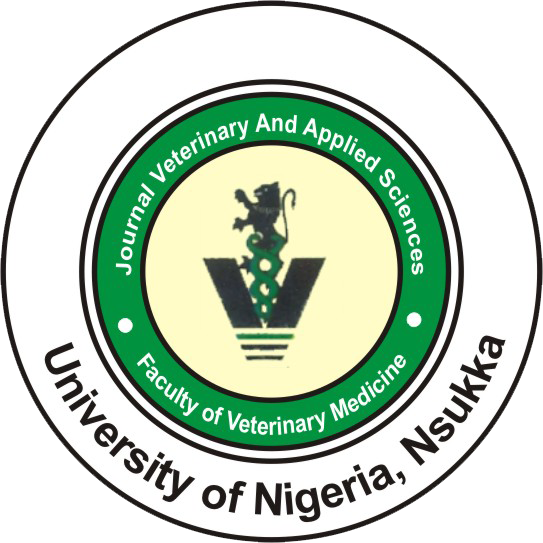University of Nigeria
ISSN: 2315 - 6856
e-ISSN: 2636 - 5553
Journal volumes
Powered by: RockSystems Global Services Ltd.
rocksystemsglobal@gmail.com (+2348035271306)
www.rocksystemsglobal.com
Volume 15, Issue 1: 2025 - Article 184
Abstract
The seeds of Xylopia aethiopica, commonly referred to as uda, is widely used by women in Nigeria for its purported beneficial effects on uterine cleansing, post-delivery. The effects on the neonates of mothers that use X. aethiopica have not been investigated. In the present study, X. aethiopica seed extract was orally administered to female rats post-partum (during the breastfeeding period), and the effects on their pups was investigated. Sixteen adult pregnant female albino rats (PFARs), each weighing approximately 180 – 200 grammes, were used for the study. The PFARs after parturition, were randomly assigned into four experimental groups (A, B, C and D) comprising four females (n = 4) in each group. Group A was the untreated control group. Groups B, C and D were treated with 250, 500 and 1000 mg/kg body weight of aqueous Xylopia aethiopica seed extract (AXASE) once daily via oral gavage from day zero post-partum until the day their pups were weaned (day 21). The rat pups’ litter weights, capillary refill time, normal head posture, eye opening, teeth eruption, fur development and auricular folding were assessed during the 21 day period of lactation period. Results showed that the mean capillary refill time of the pups of all the extract-treated groups were significantly lower (p < 0.05) than that of the untreated control group, with the group treated with the lowest dose (250 mg/kg AXASE) having the lowest mean capillary refill time. The mean litter weight of pups from Group B rats (treated with 250 mg/kg AXASE) and D rats (treated with 1000 mg/kg AXASE) was significantly higher than those of pups from Groups A (untreated control) and C rats (treated with 500 mg/kg AXASE). Developmental parameters of albino rat pups (normal head posture, eye opening, teeth eruption, fur development, and auricular folding) were normal, and there were no differences between the groups. No physical anomalies or mortalities were recorded for the pups of all the groups up to the weaning period. The results of this study suggest that Xylopia aethiopica seed extract, as used in the study, is safe for pups and helpful in the neonatal growth and development period.
Keywords: Xylopia aethiopica seed extracts; Rat pups; Growth; Health; Post-partum; Neonatal growth and development.
How to cite this article:
Njoga UJ, Chimezie BF and Ochiogu IS (2025). Oral administration of aqueous seed extract of Xylopia aethiopica to female albino rats, post-partum: effects on the growth and health of the rat pups. Journal of Veterinary and Applied Sciences, 15(1): 998 – 1004.
*Correspondence: E-mail: ugochinyere.njoga@unn.edu.ng Phone: +2347035386831

Oral administration of aqueous seed extract of Xylopia aethiopica to female albino rats, post-partum: effects on the growth and health of the rat pups
Ugochinyere J. Njoga *, Bethel F. Chimezie and Izuchukwu S. Ochiogu
Department of Veterinary Obstetrics and Reproductive Diseases, Faculty of Veterinary Medicine, University of Nigeria, Nsukka, Enugu State, Nigeria.
Download .pdf copy here >>






